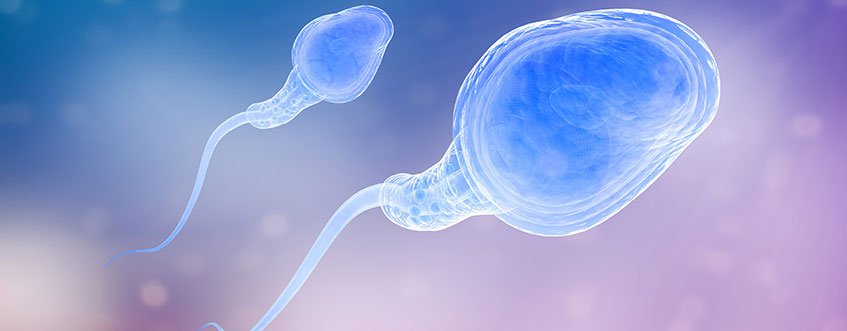
AZOOSPERMIA TREATMENT INDORE
Azoospermia is a medical condition characterized by the complete absence of sperm in a man’s ejaculate (semen). It is a significant cause of male infertility and can result from various underlying factors.
There are two primary types of azoospermia:
Obstructive Azoospermia:
In this type of azoospermia, sperm production in the testicles is normal, but there is a blockage or obstruction in the male reproductive tract that prevents sperm from reaching the ejaculate.
Common causes of obstructive azoospermia include congenital blockages: Some men are born with obstructions in their reproductive tract.
Non-obstructive Azoospermia:
This type of azoospermia occurs when there is a problem with sperm production in the testicles themselves.
Non-obstructive azoospermia can be caused by various factors, including Genetic factors: Genetic abnormalities, such as Klinefelter syndrome or Y-chromosome microdeletions, can affect sperm production.
Idiopathic: In some cases, the cause of non-obstructive azoospermia remains unknown.
Diagnosis and Evaluation of Azoospermia:
Diagnosing azoospermia typically involves a comprehensive evaluation by a urologist or reproductive endocrinologist. Diagnostic tests may include
- Semen Analysis: Multiple semen samples are collected and examined to confirm the absence of sperm.
- Hormone Testing: Blood tests may be conducted to measure hormone levels, including follicle-stimulating hormone (FSH), luteinizing hormone (LH), testosterone, and prolactin, to assess the function of the hypothalamus-pituitary-gonadal axis.
- Genetic Testing: Genetic testing may be performed to identify any genetic abnormalities that could be contributing to azoospermia.
- Imaging: Ultrasound or other imaging studies may be used to evaluate the structure of the male reproductive tract for potential obstructions.
- Testicular Biopsy: In cases of non-obstructive azoospermia, a testicular biopsy may be performed to assess sperm production within the testicles.
This procedure can help determine whether sperm can be retrieved for assisted reproductive techniques.
Treatment Options:
For Obstructive Azoospermia:
Surgical procedures can sometimes correct obstructive azoospermia.
In cases of congenital absence of the vas deferens, assisted reproductive techniques like intracytoplasmic sperm injection (ICSI) with sperm extracted from the testicles can be used.
For Non-obstructive Azoospermia:
Treatment options for non-obstructive azoospermia may include hormonal therapy, lifestyle modifications, or sperm retrieval procedures like testicular sperm extraction (TESE).
Assisted reproductive techniques like IVF-ICSI can help sperm be retrieved for pregnancy. Individuals with azoospermia should consult a specialist to determine the cause and explore treatment options. Success depends on individual factors and couple preferences, with treatment success varying.
General FAQ by Patients: –
- How can I know my sperm count?
Sperm tests in Indore allow for determining sperm count without a fertility specialist’s prescription. Standard analysis uses standard pathology, while advanced morphology analysis requires an in vitro fertilization clinic.
2. My sperm test regarding azoospermia?
Azoospermia is reported when no sperm is found after centrifuging a particular sperm sample.
3. What is the most common cause of azoospermia?
Azoospermia, a lack of sperm in the ejaculate, can be caused by vasectomy, abnormal testicle development, cancer treatment, drug use, genetic mutations, and chromosomal abnormalities, with 20% of patients having chromosomal abnormalities.
4. Is FSH normal in patients with azoospermia?
FSH levels are normal in patients with obstructive azoospermia.
5. How is azoospermia diagnosed?
The initial diagnosis of azoospermia should be confirmed through repeated sperm sampling, with the IVF doctor providing advice on exemptions and retests.
6. What is the difference between cryptozoospermia and azoospermia?
Doctors examine sperm samples without sperm, centrifuge, and test each drop. If no sperm is found, azoospermia is diagnosed.
7. What is the difference between non-obstructive azoospermia and obstructive azoospermia (OA)?
Obstructive azoospermia is a condition where sperm is produced but not transported, influenced by factors like hormones, testicular size, scrotal ultrasound, and patient history.
8. Does obstructive azoospermia mean there is hope of obtaining sperm?
The fructose test is used to identify the presence of fructose in sperm samples, with no presence indicating fructose-negative azoospermia or obstructive azoospermia.
9. What is fructose-positive azoospermia? Is it similar to non-obstructive azoospermia?
Fructose-positive azoospermia samples may indicate unaffected azoospermia, where sperm production is absent in testicles. Non-obstructive azoospermia can be caused by genetics, diseases, or hormonal factors. Additional tests like blood tests and ultrasounds confirm this possibility.
10. What are the treatments for azoospermia?
TESA is a procedure used to collect sperm for parenting in cases of obstructive azoospermia, differentiate between obstructive and non-obstructive azoospermia, and identify subtypes, with the andrologist determining purpose and meaning.
11. Tesa pesa sperm extraction
TESA is a surgical procedure that removes sperm from testicles, which are then processed in a laboratory environment and fertilized using the ICSI process. This procedure is suitable for men with azoospermia and is performed under light sedation.
12. Who is the best doctor for azoospermia treatment or azoospermia treatment?
Andrologists, trained in fertility medicine, treat men with azoospermia or azoospermia. Dr. Heena Agrawal, the best IVF specialist in Indore, is known for her excellent listening skills and ease of treatment.
13. How much does azoospermia treatment cost?
Azoospermia treatment costs at ILC infertility and IVF Indore clinics are typically higher than an IVF package, including TESA fees. It can be classified into obstructive and non-obstructive types, often linked to infertility.
- Obstructive Azoospermia:
Obstructive azoospermia is a male reproductive tract blockage preventing sperm from reaching the ejaculate, treated by urologists with surgical repair or assisted reproductive techniques.
- Non-obstructive Azoospermia: Non-obstructive azoospermia is a challenging condition causing ejaculate absence in the testes, requiring collaboration between urologists and reproductive endocrinologists or fertility specialists for effective treatment.
Treatment options for non-obstructive azoospermia may include
- Hormone Therapy: Some cases of non-obstructive azoospermia may be due to hormonal imbalances.
- Testicular Sperm Extraction (TESE): In non-obstructive azoospermia, where sperm production is impaired, TESE can be used to extract small amounts of testicular tissue for
Symptoms:
Azoospermia, a common condition, may not cause physical symptoms. If a man suspects or experiences infertility, consult an IVF specialist in Indore for diagnostic tests and treatment options.
- Infertility Azoospermia is a leading cause of male infertility.
Men with this condition are unable to father a child through sexual intercourse, as there are no sperm present in their ejaculate.
- Normal The absence of sperm in the semen may not be immediately obvious without a semen analysis.
- Underlying Causes: Azoospermia is a symptom of underlying issues, causing obstructive or non-obstructive azoospermia, which can be caused by reproductive tract blockages or sperm production problems.
- Hormonal Symptoms: Non-obstructive azoospermia can be triggered by hormonal imbalances or underlying medical conditions, causing changes in libido, erectile dysfunction, or other signs of hormonal imbalances.
- Pain or Discomfort: Obstructive azoospermia, which is caused by blockages in the reproductive tract, may be associated with pain or discomfort in the testicles, groin, or lower abdomen.
Treatments & Procedures
Non-obstructive azoospermia, caused by hormonal imbalances or medical conditions, can lead to changes in libido, and erectile dysfunction, and can be treated using various approaches.
- Patient Evaluation: A thorough evaluation of the patient’s medical history and hormonal profile is conducted before micro-TESE to determine the underlying cause of azoospermia and confirm its appropriateness.
- Surgical Preparation: The procedure is typically performed under general anaesthesia The scrotum is prepared for surgery, and the area is sterilized.
- Testicular Biopsy: A small incision is made in the scrotum or the groin, and the surgeon carefully exposes the testicle.
- Sperm retrieval: Sperm retrieval involves examining tissue samples under a microscope to detect potential sperm-containing areas within the testicle, with the aim of extracting sperm from these areas.
- Closure: Micro-TESE is a specialized procedure for men with azoospermia, requiring careful monitoring and recovery, with success based on underlying cause and surgeon skill.
To Consult with a Specialist:
To treat azoospermia, ILC Infertility, and IVF Center Indore offer all types of treatments for obstructive and non-obstructive azoospermia with very minimal cost in quality and efficiency, and stop worrying about all your Azoospermia problems.
For more info please visit https://infertilityandivfindore.com/
Or Call Us at +917566688084 for reproductive medicine such as polycystic ovaries, endometriosis, obesity, recurrent IVF failures, and unexplained infertility cases as well as a wide range of fertility treatments.
Book an appointment now
